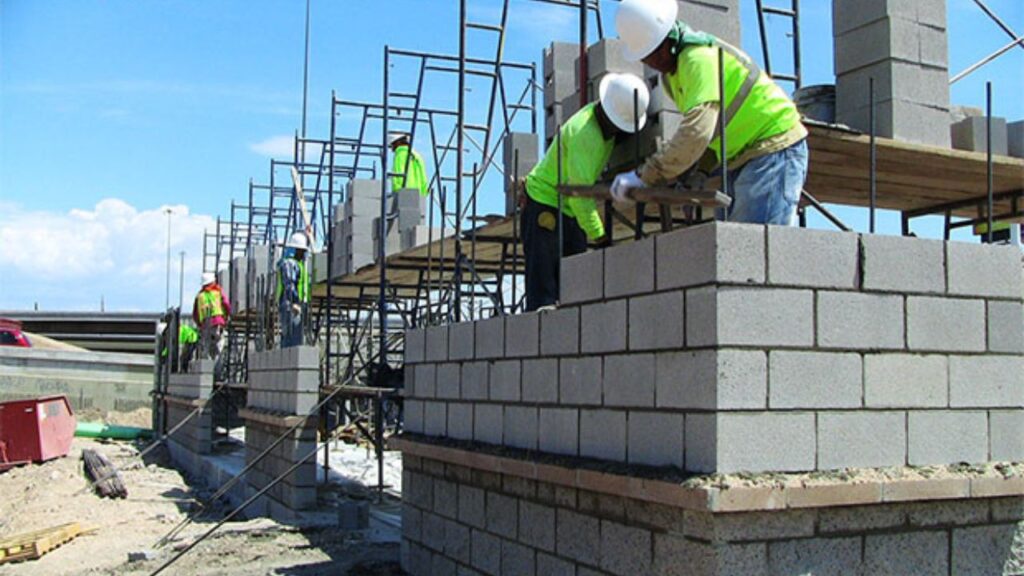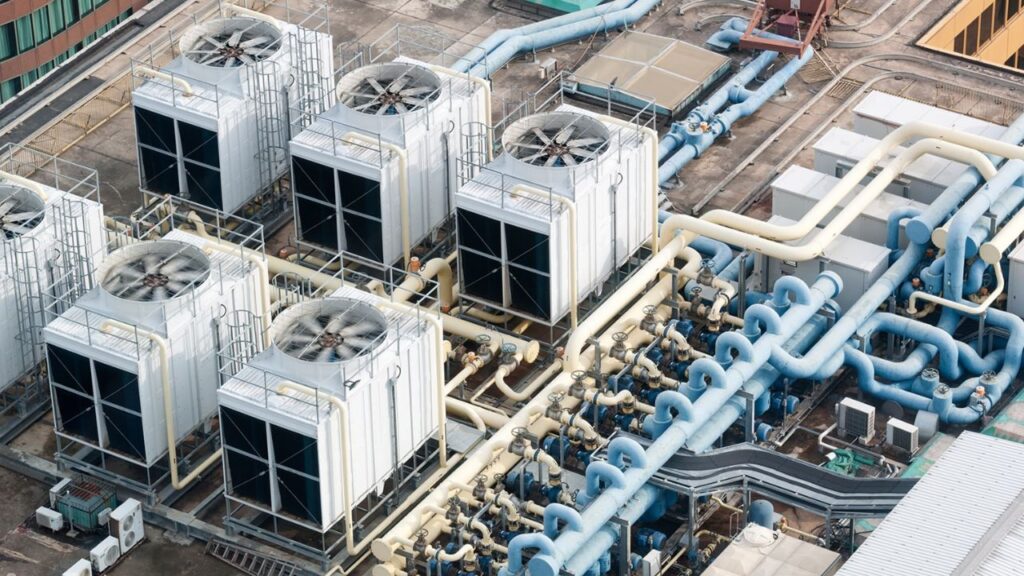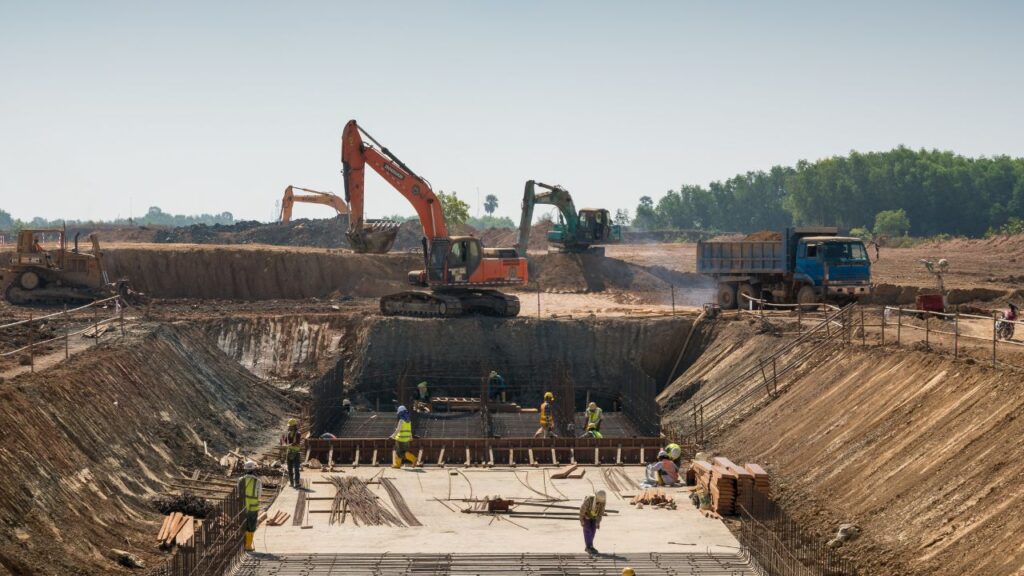- Homepage
- Blogs
Construction Budget Analysis Services
Leading provider of construction budget estimating.
Construction projects, whether residential or commercial, require meticulous planning and financial management. Budget analysis involves evaluating all potential costs associated with a project, ensuring no hidden expenses arise during construction. In Florida, where construction demand is booming, effective budget analysis services are crucial for project success. Estimate Florida Consulting is your go-to partner for detailed, transparent, and reliable budget analysis services, helping you stay on track and within budget.
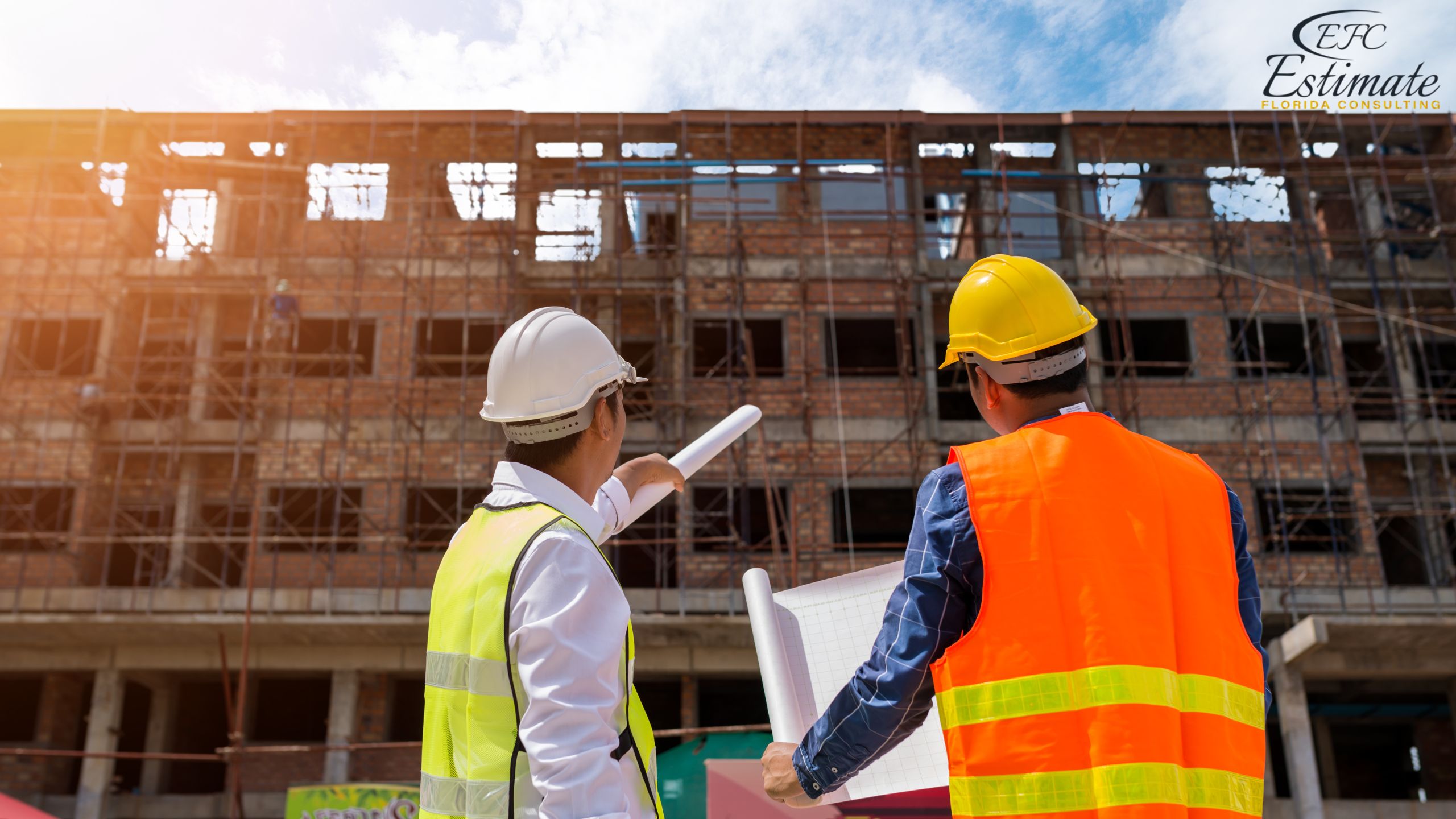
What Are Construction Budget Analysis Services?
Construction budget analysis services involve systematically evaluating a project’s financial plan to identify, estimate, and control costs. These services encompass pre-construction cost estimations, ongoing budget monitoring, and post-construction financial assessments. By leveraging professional budget analysis, clients can:
- Avoid unexpected expenses.
- Optimize resource allocation.
- Ensure financial accountability across all project phases.
Why Is Budget Analysis Critical for Construction?
Budget analysis plays a pivotal role in the success of any construction project. It ensures that financial resources are managed effectively and that the project progresses smoothly without unnecessary delays or cost overruns. Here are the key reasons why budget analysis is so important:
Cost Control
A thorough budget analysis allows for precise monitoring of expenses, ensuring that costs stay within the allocated budget. By tracking expenditures in real-time, project managers can identify discrepancies early and adjust spending to prevent overruns. This financial oversight is crucial for avoiding unnecessary debts and ensuring the project remains financially viable from start to finish.
Risk Mitigation
Construction projects often face unforeseen challenges, such as rising material costs, labor shortages, or unexpected site conditions. A detailed budget analysis helps identify potential financial risks in advance, enabling project managers to develop contingency plans. By proactively addressing these risks, teams can minimize disruptions and prevent small issues from escalating into costly problems.
Efficiency
An analyzed budget improves resource allocation, ensuring that labor, materials, and equipment are used efficiently. This leads to streamlined workflows and eliminates waste, reducing delays and unnecessary expenses. Efficient budget management also helps maintain project timelines, ensuring that all tasks are completed on schedule and within the agreed-upon financial framework.
Stakeholder Confidence
A transparent and well-prepared budget fosters trust among stakeholders, including contractors, investors, and clients. When stakeholders see that the project is financially sound and carefully planned, they are more likely to feel confident about their investment. Detailed budgets also facilitate better communication, allowing stakeholders to understand how funds are being utilized and what value they can expect from the project.
Get Acquainted with Estimation
Construction Cost Estimator | Cost Estimating Service
Estimated Construction Cost For Building | Construction Cost Estimator
Types of Construction Budget Analysis
Effective construction budget analysis ensures projects stay financially on track from start to finish. Each phase focuses on a specific aspect of cost management, from initial planning to post-completion evaluation, providing a comprehensive financial overview. Here’s a closer look at the key types of construction budget analysis:
Pre-Construction Budget Analysis
Pre-construction budget analysis is the foundation of financial planning for any construction project. This phase involves creating an initial budget based on the project’s design, requirements, and specifications. The analysis includes detailed cost estimations for materials, labor, equipment, permits, and potential subcontractor fees. Accurate pre-construction budgeting is crucial to avoid unexpected expenses and ensure financial feasibility. Typically, this phase also accounts for contingencies, which are essential for mitigating risks like material price fluctuations or unforeseen delays.
Ongoing Budget Monitoring
Ongoing budget monitoring ensures that actual expenditures align with the planned budget throughout the construction process. This involves regular tracking of expenses, comparing them to forecasts, and preparing variance reports to identify discrepancies. For instance, if material costs exceed expectations, adjustments can be made in other areas to avoid overspending. Effective budget monitoring also includes real-time communication between project managers, contractors, and stakeholders to address financial challenges promptly. This proactive approach prevents financial overruns and ensures that project milestones are met within budget.
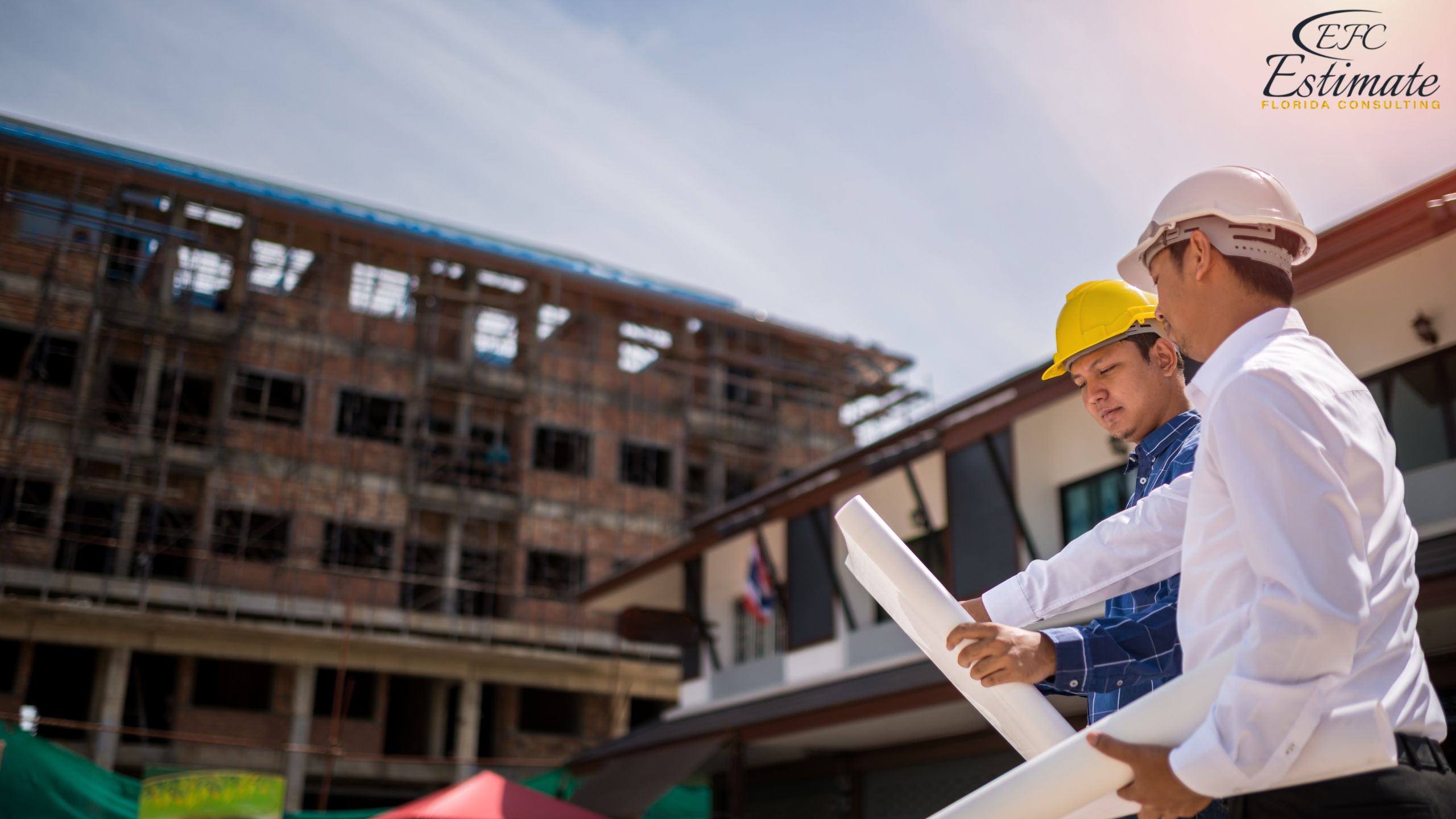
Post-Construction Financial Review
The post-construction financial review evaluates the project’s overall financial performance upon completion. This phase involves comparing actual costs with the initial budget to determine any variances and assess financial efficiency. Insights gained from this review can highlight areas where cost savings were achieved or where overspending occurred. Additionally, the data collected during this phase can be invaluable for future projects, providing benchmarks for better financial planning and decision-making. Post-construction analysis also helps in ensuring that all final payments, including retainages, are accurately accounted for.
Construction Budget Breakdown
When planning a construction project, understanding the budget breakdown is essential to allocate funds effectively and avoid surprises. Here’s a detailed look at the key components of a construction budget, along with their typical costs and percentages.
Labor Costs
Labor costs are one of the largest expenses in any construction project, accounting for 36% to 60% of the total budget. The percentage varies depending on the complexity of the project, the type of labor required (e.g., skilled trades like electricians or masons vs. general laborers), and the location of the construction site. Urban areas or regions with higher labor demand, such as Florida, tend to have elevated labor costs. For example, hiring skilled masons or HVAC specialists will cost more than general contractors due to their expertise. Properly budgeting for labor ensures the project remains on schedule without compromising quality.
Material Costs
Material costs can vary widely depending on the scope of the project and the quality of materials chosen. Basic materials for standard construction will cost less, while premium finishes, energy-efficient components, and sustainable materials can increase costs by 24% to 48%. For instance, using luxury tiles, custom cabinetry, or high-performance insulation will significantly raise the overall budget. The type of structure also influences costs—for example, residential projects may prioritize aesthetic materials, while industrial buildings focus on durability and functionality. Accurate estimation of material costs is critical for avoiding shortages or overspending.
Permits and Fees
Permits and fees are a mandatory expense and can vary significantly by location and project size. In Florida, permits typically cost between $3,600 and $18,000, covering everything from building permits to inspections and utility connections. Projects in urban or coastal areas may incur higher fees due to additional regulations and zoning requirements. Securing permits early in the planning process prevents delays and ensures compliance with local building codes. Always verify permit costs with your local building authority for accurate budgeting.
Contingency Funds
A contingency fund is a vital part of any construction budget, designed to handle unforeseen expenses that arise during the project. This reserve typically accounts for 6% to 12% of the total budget. Common uses for contingency funds include weather-related delays, unexpected material shortages, or design changes requested during construction. Having a well-funded contingency plan not only reduces stress but also ensures the project remains on track without financial strain.
Construction Budget Analysis by Project Type
Analyzing the budget for a construction project involves considering various factors such as project type, size, materials, labor, and regulatory requirements. Each type of project comes with unique challenges and cost ranges that must be accounted for during the planning phase. Below is a breakdown of budget analysis by project type to help guide effective decision-making.
Residential Budget Analysis
Residential construction projects include single-family homes, townhouses, and multi-family units such as apartments or condominiums. Costs for these projects typically range from $216 to $480 per square foot, depending on the size, design complexity, and materials used. High-end homes with luxury finishes or custom features can push costs even higher. Budget analysis for residential projects also accounts for site preparation, permits, and utility connections, as well as long-term factors like energy efficiency and potential future upgrades. Careful planning ensures that the project aligns with homeowner expectations while staying within financial constraints.
Commercial Budget Analysis
Commercial construction projects, including office buildings, retail spaces, and warehouses, require detailed financial planning due to their larger scale and stricter regulatory requirements. Costs generally range from $240 to $720 per square foot, influenced by the complexity of systems like HVAC, fire suppression, and elevators. Additionally, the design of commercial spaces often requires flexibility to accommodate future tenant needs, adding to the budget. Regulatory compliance, such as ADA accessibility standards and local building codes, must also be factored in. A thorough budget analysis helps balance upfront construction costs with the long-term operational efficiency of the building.
Infrastructure Budget Analysis
Infrastructure projects, such as roads, bridges, and utilities, involve significant material and labor expenses due to their scale and technical demands. Costs vary widely depending on the type of project, but bulk procurement of materials like concrete, steel, and asphalt can help control expenses. A typical infrastructure project requires detailed budget planning to account for site conditions, engineering challenges, and regulatory approvals. Long-term maintenance and repair costs are also key considerations, as these projects are designed for extended use. By including factors like lifecycle costs and environmental impact, infrastructure budget analysis ensures that projects remain functional and sustainable over time.
Win More Projects With Us
Detailed Cost Analysis by Construction Components
When planning a construction project, understanding the cost breakdown by components is essential for accurate budgeting and prioritization. Each component contributes significantly to the overall cost, influenced by material choices, project scale, and complexity. Below is a detailed analysis of the major construction components and their typical cost ranges.
Roofing Budget
Roofing is a critical component of any structure, protecting it from weather and environmental damage. Costs vary based on the type of material used, such as asphalt shingles, metal, or tile, and the size of the project. For residential roofs, the cost typically ranges from $9,600 to $24,000, while commercial roofing projects can reach up to $60,000, depending on complexity and material durability.
Plumbing Budget
Plumbing expenses encompass water supply lines, drainage systems, and fixtures for bathrooms, kitchens, and laundry rooms. The number of bathrooms, type of fixtures, and whether the project includes specialty installations like water heaters or filtration systems significantly affect costs. Plumbing budgets usually range from $12,000 to $30,000, with more extensive layouts or premium fixtures increasing expenses.
Framing Budget
Framing forms the structural backbone of the building, including walls, floors, and roofs. Costs are influenced by the size, design complexity, and material, such as wood or steel.
Framing budgets typically range from $18,000 to $60,000, with larger or multi-story projects requiring additional materials and labor.
Electrical Budget
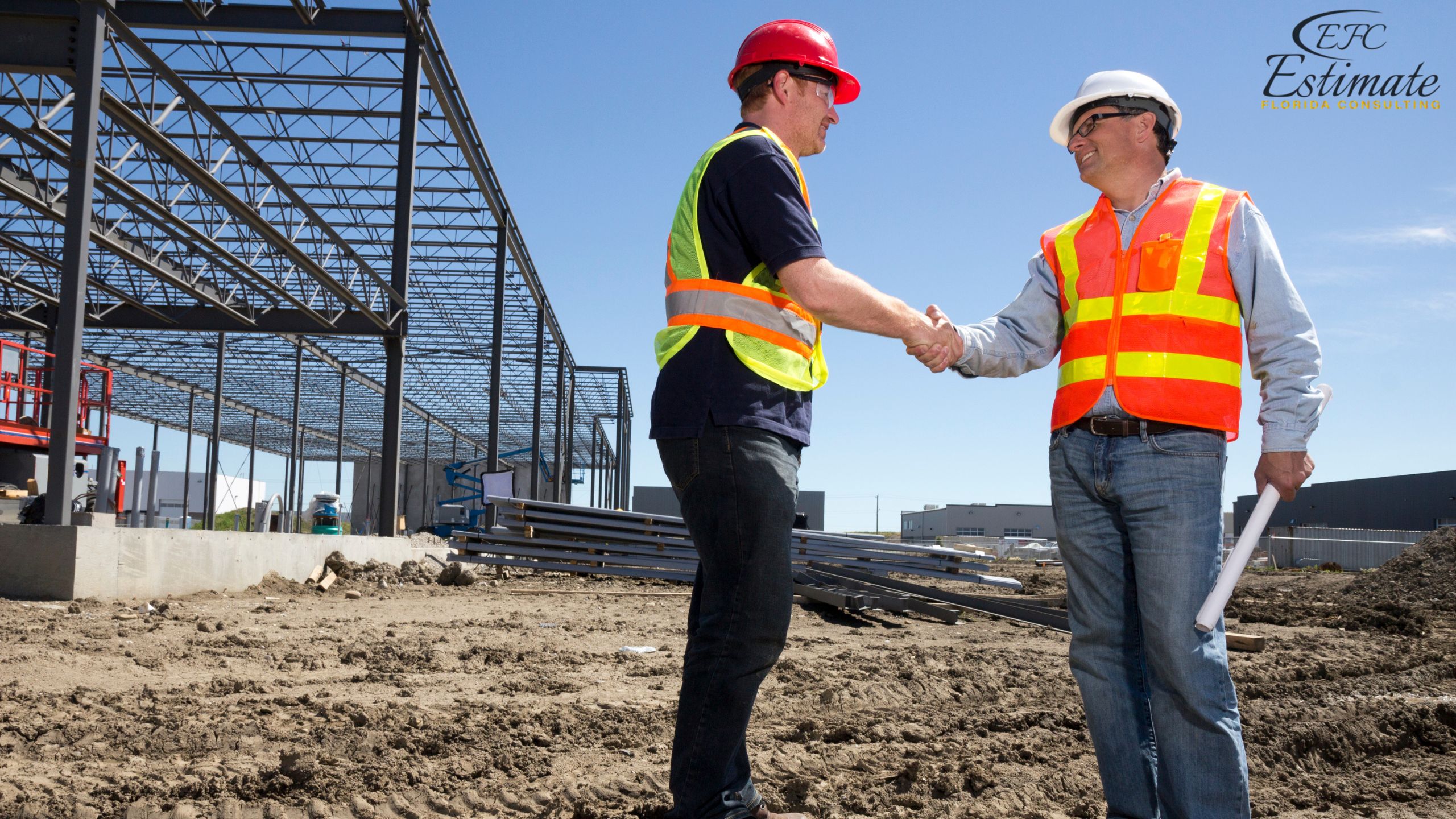
Electrical systems include wiring, outlets, fixtures, and panels to ensure the building meets functional and safety standards. Advanced features like smart home systems or energy-efficient lighting can raise costs. Electrical budgets generally range from $9,600 to $36,000, depending on the complexity and size of the project.
Concrete Budget
Concrete is used for foundations, slabs, driveways, and walkways, forming a stable and durable base for the structure. Costs depend on the type of concrete, thickness, and whether reinforcements like rebar are needed. Concrete expenses typically range from $12,000 to $36,000, with larger buildings requiring more extensive foundations.
Flooring Budget
Flooring costs vary widely based on the materials chosen, such as hardwood, tile, vinyl, or carpet, as well as the area to be covered. Additional costs may arise from subfloor preparation or installation of specialty flooring. Flooring budgets typically range from $6,000 to $30,000, with high-end materials like marble or exotic hardwoods on the higher end of the spectrum.
Cost Analysis by Project Size
Understanding construction costs based on project size is crucial for accurate budgeting and planning. Whether you’re building a small residence, a mid-size development, or a large-scale commercial project, costs will vary based on materials, labor, design complexity, and location. Here’s a breakdown of average costs by project size:
Small-Scale Projects
Small-scale residential projects, such as single-family homes under 1,500 square feet, typically cost between $240,000 and $480,000. These projects often include standard finishes and straightforward designs, which help keep costs manageable. Expenses can vary based on the choice of materials, customizations, and the inclusion of features like upgraded flooring or energy-efficient systems.
Mid-Size Projects
Mid-size projects, such as multi-family homes, duplexes, or townhouses, generally range from $480,000 to $960,000. These types of projects often require more labor, materials, and planning due to their larger size and the need to accommodate multiple units. Shared spaces, such as lobbies or communal areas, can also add to the cost. Developers often invest in mid-grade finishes and energy-efficient systems to balance aesthetics with long-term savings.
Large-Scale Developments
Large-scale developments, including apartment complexes, office buildings, or commercial facilities, often exceed $1.2 million. Costs for these projects can escalate depending on the scale, design complexity, and specialized requirements, such as elevators, parking structures, or high-end amenities. Multi-story buildings or developments in high-demand urban areas may incur higher costs due to zoning regulations, increased labor demands, and premium materials.
Common Budgeting Mistakes to Avoid
- Underestimating costs for materials and labor.
- Failing to allocate a contingency fund.
- Overlooking permits and regulatory expenses.
- Ignoring inflation and market fluctuations.
Download Template For Construction Project Breakdown
- Materials list updated to the zip code
- Fast delivery
- Data base of general contractors and sub-contractors
- Local estimators

Benefits of Using Estimate Florida Consulting for Budget Analysis
When it comes to planning and managing construction budgets, Estimate Florida Consulting offers unparalleled expertise to streamline the process and maximize efficiency. Here’s why choosing our services can make all the difference in your project’s success:
Accurate Cost Estimates
We specialize in delivering precise, detailed cost breakdowns tailored to the unique needs of your project. From materials and labor to permits and unexpected expenses, our estimates provide a comprehensive view of your budget. This accuracy ensures you can confidently plan your finances without fear of hidden costs or budget surprises.
Expert Guidance
Our team of seasoned professionals brings extensive knowledge of Florida’s construction regulations, zoning laws, and industry best practices. We not only help you stay compliant with local requirements but also offer valuable insights to optimize your project. Whether you’re building a commercial property or a residential development, our expertise guarantees a smoother planning process.
Time and Cost Savings
By providing proactive budgeting solutions, we help you identify potential risks and avoid costly delays or overruns. Our detailed analysis ensures that every dollar is allocated effectively, saving you both time and money throughout the project lifecycle. With Estimate Florida Consulting, you gain the confidence of knowing your project is on track, on time, and within budget.
Conclusion
Construction budget analysis services are essential for successful project management. By leveraging professional analysis, stakeholders can optimize costs, mitigate risks, and achieve project goals efficiently. At Estimate Florida Consulting, we are dedicated to providing industry-leading budget analysis services for contractors, developers, and homeowners across Florida. Contact us today to ensure your construction project stays on time and within budget!
Frequently Asked Question
Construction budget analysis services involve a comprehensive evaluation of a project's financial plan. This process identifies, estimates, and monitors costs to ensure effective budget management throughout all phases of a construction project. Key benefits include:
- Avoiding unexpected expenses by proactive cost estimation.
- Optimizing resource allocation to maximize efficiency.
- Ensuring financial accountability at every stage of construction.
Budget analysis is crucial for successful project execution, offering several advantages:
- Cost Control: Tracks expenses in real time to avoid budget overruns.
- Risk Mitigation: Identifies potential financial risks and develops contingency plans.
- Efficiency: Streamlines resource allocation, reducing delays and waste.
- Stakeholder Confidence: Provides transparency, building trust among contractors, investors, and clients.
Budget analysis is divided into three main categories:
- Pre-Construction Analysis: Initial planning to estimate costs for materials, labor, permits, and contingencies.
- Ongoing Budget Monitoring: Tracks expenses during construction to ensure alignment with the budget.
- Post-Construction Review: Evaluates financial performance and provides insights for future projects.
A construction budget typically includes:
- Labor Costs: Accounting for 36% to 60% of the budget, depending on the complexity of the project and location.
- Material Costs: Vary widely based on quality, project scope, and design preferences.
- Permits and Fees: Essential expenses, typically ranging from $3,600 to $18,000 in Florida.
- Contingency Funds: A reserve of 6% to 12% of the budget for unforeseen costs.
Each project type requires tailored financial planning:
- Residential Projects: Costs range from $216 to $480 per square foot, influenced by size and design complexity.
- Commercial Projects: Average costs are $240 to $720 per square foot, with additional regulatory considerations.
- Infrastructure Projects: Budgets account for engineering challenges, bulk materials, and lifecycle costs.
Avoid these pitfalls for effective budget management:
- Underestimating material and labor costs.
- Failing to include a contingency fund.
- Ignoring regulatory fees and inflation.
- Overlooking long-term operational costs.
Estimate Florida Consulting provides:
- Accurate Cost Estimates: Detailed breakdowns tailored to your project needs.
- Expert Guidance: Extensive knowledge of Florida’s construction regulations and industry practices.
- Time and Cost Savings: Proactive solutions to prevent delays and minimize expenses.
A transparent and well-prepared budget fosters trust by:
- Demonstrating financial soundness and planning.
- Facilitating clear communication about fund utilization.
- Highlighting the value stakeholders can expect from their investment.
- Roofing: $9,600 to $60,000 depending on material and complexity.
- Plumbing: $12,000 to $30,000 for fixtures and water systems.
- Framing: $18,000 to $60,000 influenced by design and materials.
- Electrical: $9,600 to $36,000, including wiring and fixtures.
- Concrete: $12,000 to $36,000 for foundations and slabs.
- Flooring: $6,000 to $30,000, depending on material choice.
A contingency fund (6% to 12% of the budget) provides a financial cushion for unforeseen issues, such as:
- Weather-related delays.
- Material shortages.
- Design changes during construction.
Comprehensive Trade-Specific Estimates
At Estimate Florida Consulting, we offer detailed cost estimates across all major trades, ensuring no part of your project is overlooked. From the foundation to the finishing touches, our trade-specific estimates provide you with a complete and accurate breakdown of costs for any type of construction project.

Testimonials
What Our Clients Say
We take pride in delivering accurate, timely, and reliable estimates that help contractors and builders win more projects. Our clients consistently praise our attention to detail, fast turnaround times, and the positive impact our estimates have on their businesses.
Estimate Florida Consulting has helped us win more bids with their fast and accurate estimates. We trust them for every project!

Steps to Follow
Our Simple Process to Get Your Estimate
01
Upload Plans
Submit your project plans, blueprints, or relevant documents through our online form or via email.
02
Receive Quotation
We’ll review your project details and send you a quote based on your scope and requirements.
03
Confirmation
Confirm the details and finalize any adjustments to ensure the estimate meets your project needs.
04
Get Estimate
Receive your detailed, trade-specific estimate within 1-2 business days, ready for your project execution.





